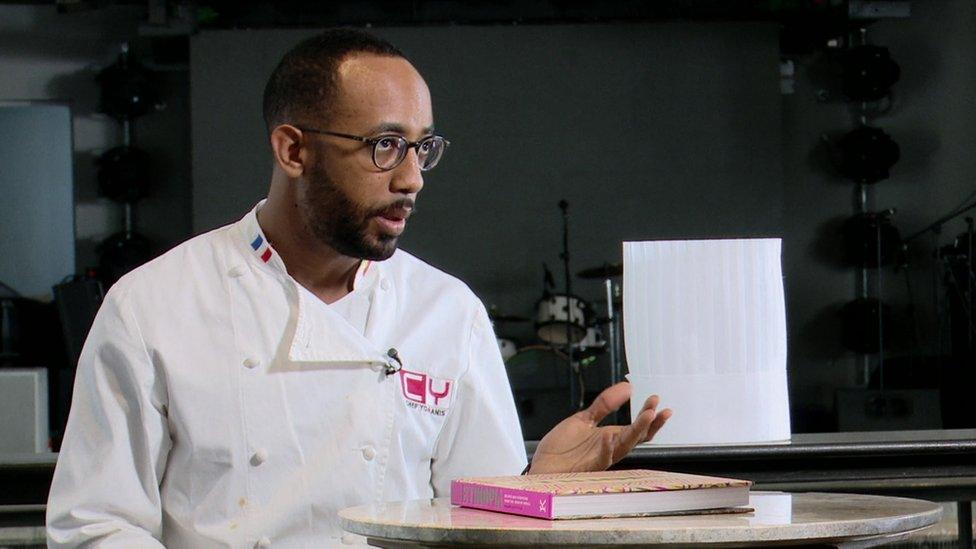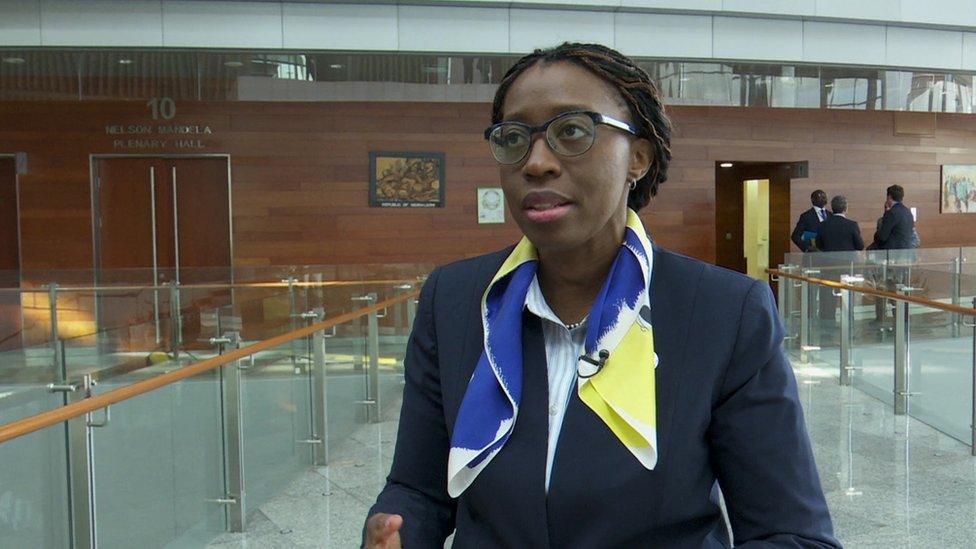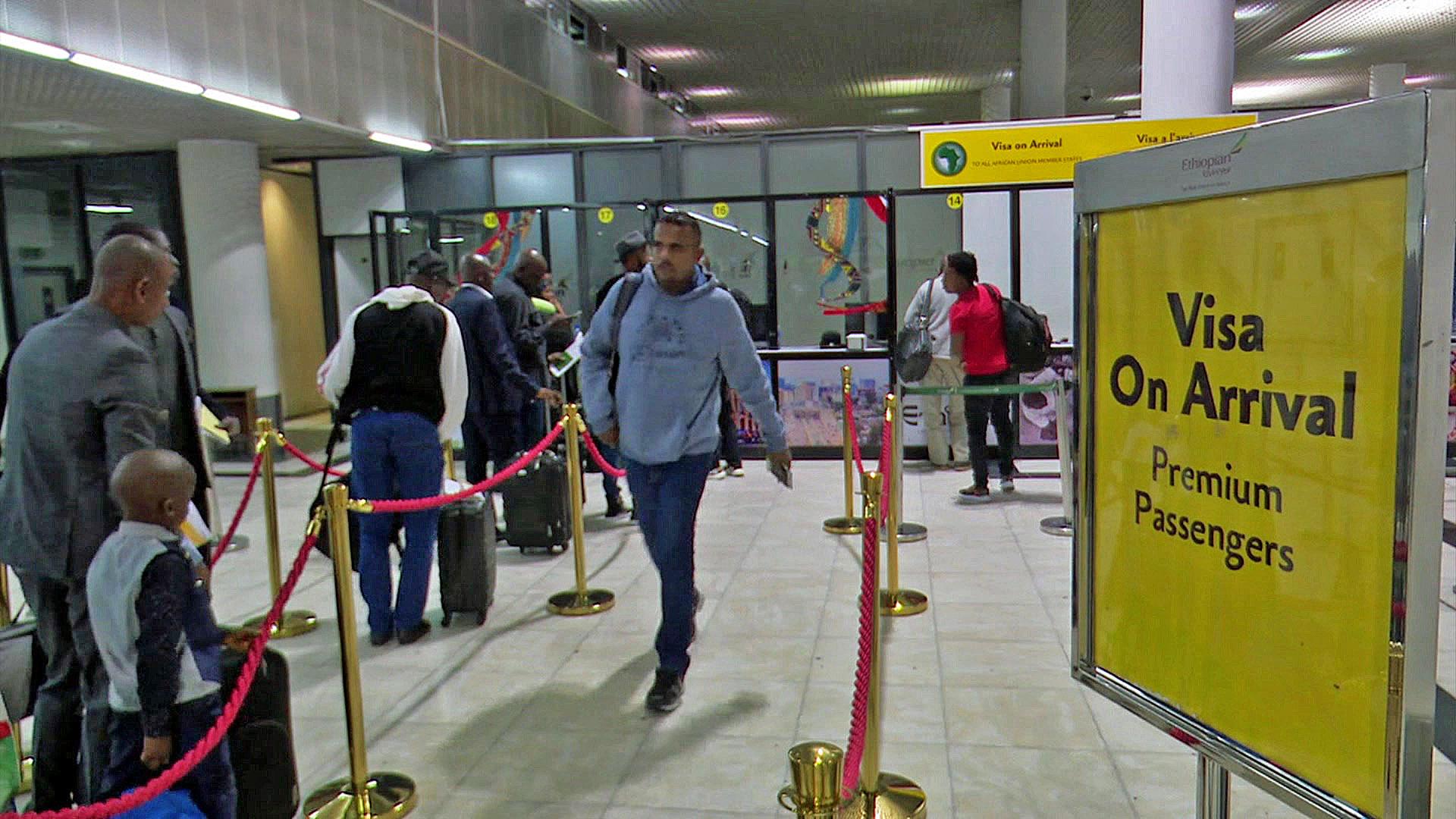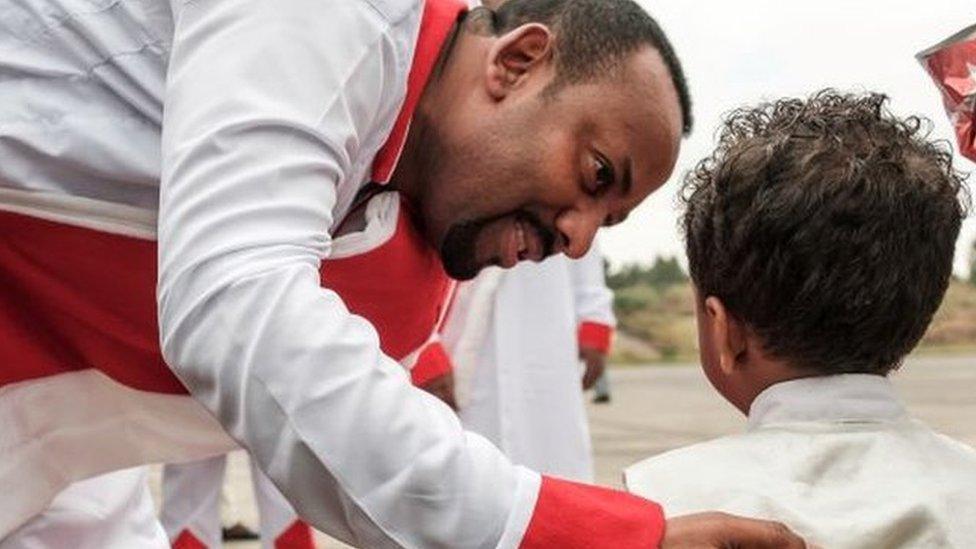The Ethiopians returning home to start businesses
- Published

Hundreds of Ethiopians who have been living abroad are returning to the country, following reforms brought in by Prime Minister Abiy Ahmed.
Mr Abiy's ambitious reforms include changing the law to enable more Ethiopians living abroad to come back and help rebuild the economy.
For years, Ethiopia's economy has been tightly controlled by the state and closed to many international investors.
About two million Ethiopians live in the diaspora, the government estimates.
About half of those displaced Ethiopians have found new homes in the US, particularly in Washington DC, which boasts a huge, thriving Ethiopian community.
Abiy Bister owns an Ethiopian restaurant in Washington DC. He hasn't seen his homeland in almost two decades, but now he is considering returning to Ethiopia to start a business there.
"Everybody is positive. I remember days where people were not talking to each other...but now you see a lot of positive change, in that people are appreciating the positive vibe that is coming to the country," he tells the BBC.
Changing mindsets
Aside from seeking to establish common ground between the 80 different ethnic groups in Ethiopia, the government has focused on economic reforms to help liberalise the economy and make the country an attractive business destination in Africa.

Celebrity chef Yohannis Gebreyesus has his sights set on making Ethiopian food more popular internationally
Ethiopia has one of the fastest growing economies in the world, but it also has a vast number of unemployed young people.
According to the National Bank of Ethiopia, remittances to Ethiopia have risen dramatically in recent years and now total over $3bn (£2.3bn), as Ethiopians living abroad send money home to support family and invest in local businesses.
Among those who are already reaping the benefits of that change is celebrity chef Yohannis Gebreyesus. After more than eight years studying and working in the US and France, he returned to Ethiopia and is now making his name in the food industry.
"As we know, tourism is becoming big, so the hospitality industry is becoming crucial. Not only shaping what we eat, but the service as well, is an important part of my work," he says.
Mr Gebreyesus hosts a weekly TV programme showcasing the best of Ethiopian food and recently authored a book. He added that he has his sights set on making Ethiopian food recognised even further globally.

Vera Songwe, executive secretary of the UN Economic Commission for Africa, says Africans returning from abroad at least some months of the year can make a big impact
Vera Songwe, executive secretary of the UN Economic Commission for Africa, feels that the impact of the new Ethiopian government reforms will be felt more keenly once they are formalised before the elections in late August.
"We need intelligence to move around and for there to be an exchange," she tells the BBC.
"So what we need to do is understand how to harness the brain drain. We have seen Ghana has done the year of the return and if you didn't have anybody, nobody would be returning and they have brought back almost 1% of GDP to Ghana's economy.
"We like that. We want that exchange."
She added that other countries get a boost to their economies via tourism from their own citizens - for example, Moroccans living abroad like to return to the country in the summer and spend, so their contributions to the economy are felt, even if they don't live there all the time.
- Published13 March 2019

- Published3 January 2019
